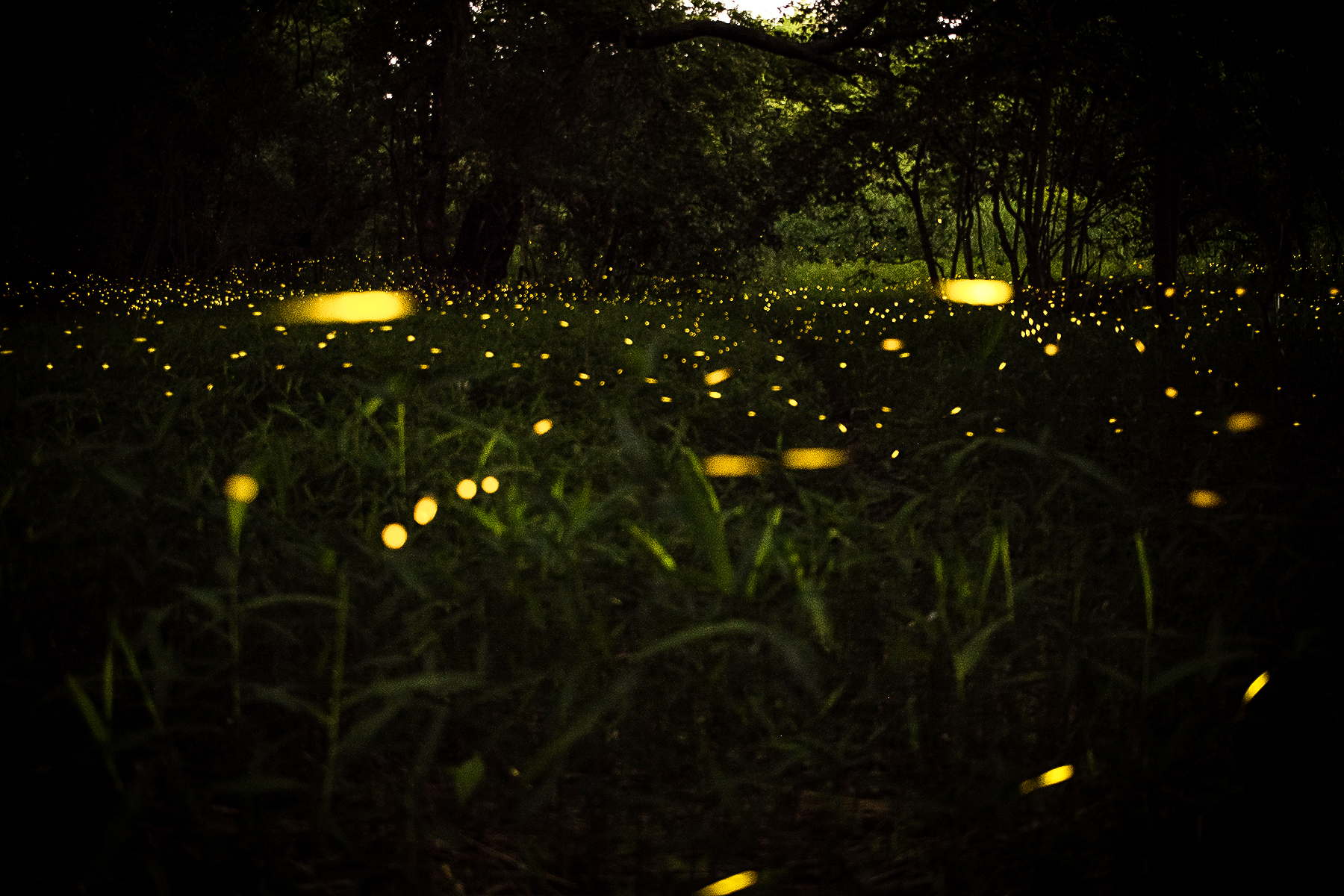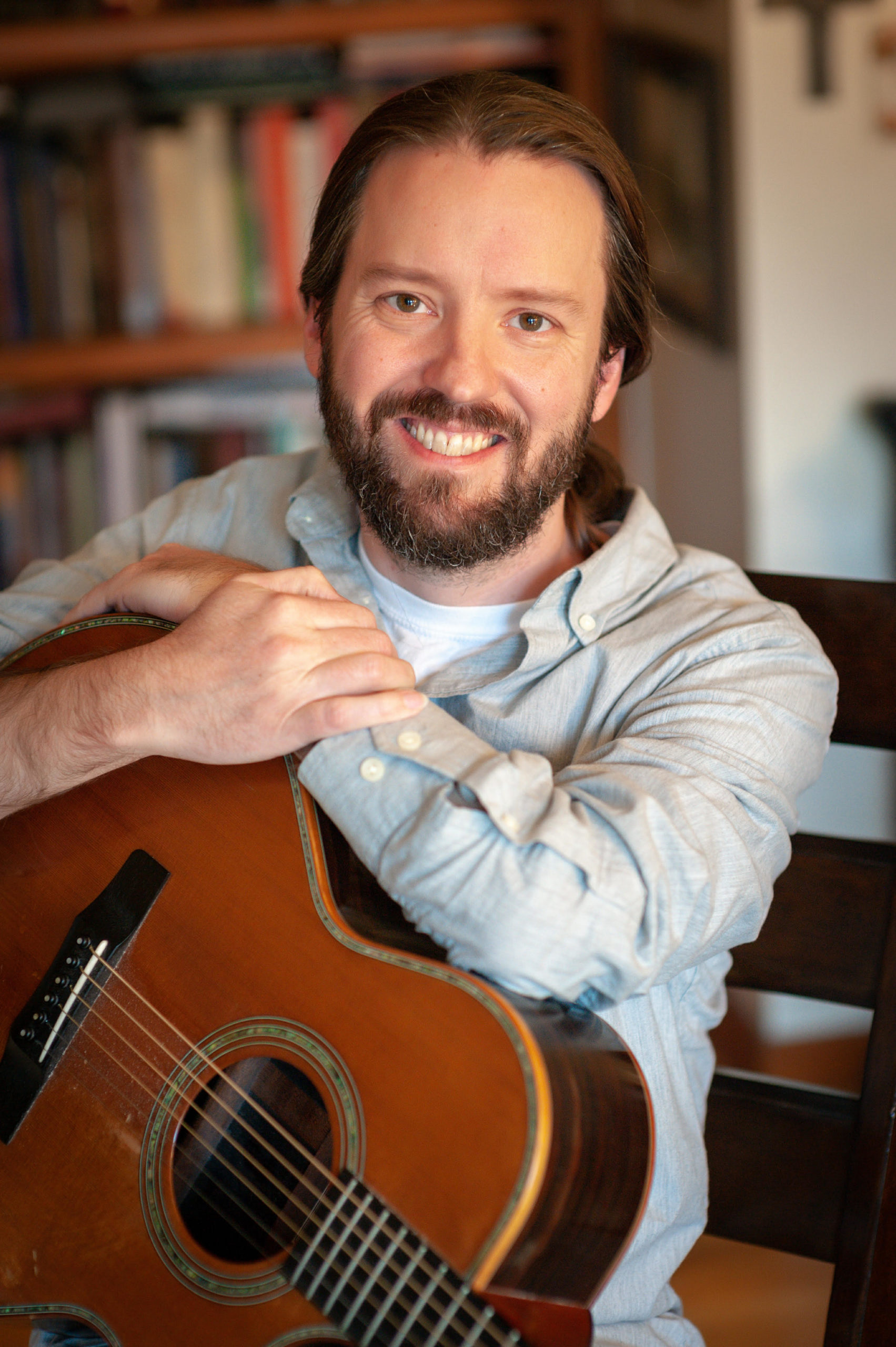Somewhere along the way I learned to recognize the leaves of a pecan tree. Not intentionally. My Grandmother Clark had some in her yard, I think, and I have disjointed memories from my childhood of picking up pecans in various places beneath those slender-leaved canopies. As I stooped to gather little palm-sized footballs, I must have made note unconsciously of the drooping tines of the pecan tree. It’s worth doing. If you know how to recognize the leaves, they wave like little signalmen to mark the right spot where, when late Fall rolls around, you’ll want to come with a basket to gather those little cracking coffers. But if you don’t know the leaves you’ll miss the signs that promise a coming harvest and subsequent feast.
Most leaves I don’t know.
Yesterday, I went on a walk with a friend and we found a creeping vine with broad heart-shaped leaves, saw-toothed around its edges. Tiny clusters of palest yellow no bigger than my thumb were gathering along the fragile shoots, each miniscule fruit on the cluster about the size of a ladybug’s ballcap. I hoped they were what I thought they might be: muscadines. I plucked a leaf to take home and look up.
Muscadines used to grow on the road behind my house more than ten years ago when I lived in Oxford, Mississippi. That road led to a golf course set a mile back from my place. I loved to walk out there at night when I was lonely (or when I was not) and traipse around the moonlit fairways under the starlight. To be alone after midnight in the middle of an empty golf course laying on your back in the grass is good stuff. I miss that. Even the loneliest times out there were companioned by the stored warmth of day rising up from the earth and the various breathings of the world coursing over that big open bowl rimmed with loblolly pines, and the flung-stars – the heavenly ‘fire-folk’. Not to mention some ambling unseen but half-heard creature rippling through the liquid shadows.
One particular night I came upon what seemed like a portal opened into our world through an alleyway of trees. I guess it had been a road made for some planned-but-abandoned development, but now the neglected asphalt was crinkled and sprouting or straw-strewn and disappearing in places under mudflow. The mud is bright red around there and so it is called the Red Clay Hills Region. At any rate, the abandoned road created a cleft in the trees for a straight quarter of a mile, an empty alleyway walled on either side by dark trees in the night. But this night, it was transfigured, as if some wind from another world blew ten thousand dandelion seeds through a keyhole in the cosmos and they swirled, bright as newly struck match-heads, a conflagration of fireflies. It was happening before I got there, and it went on for who knows how long after I went home to bed. I just happened upon “Firefly Alley” on a lonely night-walk. It was a grace. A prayer flown off and come back to me like a homing pigeon; tied to its leg, a prophet’s scroll. The abandoned alley went somewhere after all, or Somewhere came here through it.
Even further back, I recall climbing up the branch of an old tree that sent its half-arch out over the water of the pond below my parent’s house. I was trying to get at some muscadines back then, in fact. They were growing up high and out on a limb. Scary as it was to reach for them, the little round fruit was worth pushing through the fear. If you don’t know muscadines, they are tough-skinned on the outside. The rind is thick and tart, slightly bitter, even; the inside is much softer than a grape and more honeyed in taste. Eaten together the tartness sharpens the sweetness and the sweetness gives the bitterness tone, like a harmony incorporating discord creates something like a good-ache in song.
They do seem to sing a song together like knowledge and hope. My friend Sara is writing a book and she shared a chapter of it last night at our Inklings-inspired Artist’s Club, The Draftlings. There was a line that stuck out to me as one of the characters has an experience that involves him in sorrow — “He had sipped from the bitter draught of knowledge, and it angered him. He felt now that he would never be happy again.”
I’ve sipped that cup too, and at different times in my life felt I could never be happy again. But I’ve also tasted the honeyed sweetness of hopes finally undeferred, however hard-won.
Those muscadine clusters that right now look like nothing more than tiny pale freckles on the face of the forest will swell and ripen by mid-September. They’ll weigh down a basket. The slender signalmen drooping from the pecan tree say there’s a joy set before us. Those leaves seem almost like strung-up shed feathers waiting to be reconstituted into a bird, like a fallen tree saying someone has the timbers of a house in mind, or an instrument for song.
We’ve sipped that cup of bitter knowledge, yes; but a mystery has been opened to us, and we’ve known it to be consecrated into wine, like the chalice of Christ. That’s just another way of saying that no matter what, the Lord can get us home safe. If He can, then we’ve been given a reality that supplies the courage we need to live faithfully, truthfully. Stanley Hauerwas wrote to his godson that to live courageously is to live truthfully.
The truth is that all the bitterness in the world is no match for the sweetness of Jesus.
How can we not sometimes look with ragged hearts upon the sad world, our own deferred hopes, and feel there is no real reason to take another step in faith? To make the effort to be holy when it only makes us feel like fools? To fight what Tolkien called “the Long Defeat,” knowing the Christian’s hope is not to conquer the world by worldly means or standards, but to die. And even then, not to die like heroes trying to kill our enemies, but like martyrs who seek to live truthfully and to endure to the end.
Like an alleyway in the woods, the road of truthful living does seem to go nowhere. It does seem abandoned. Perhaps that it ought to be abandoned. Yet, if you travel it, even in the loneliest night, you may see a beauty that endures whether or not any one of us is keeping watch: that guarantee of light descending through some seemingly locked door of shadow to rest upon the brows of those who walk courageously by faith and not by sight.
Not by sight, because circumstances don’t bend to our will. We don’t always get what we want when we want it, but we keep going because of what we’ve seen. Just this morning I was reading Psalm 77. The Psalmist speaks for us from a time of discouragement; he remembers back when things were good — but now? There’s no fruit on the vine, the sweltering heat is eating up every wisp of prayer. But here’s the kicker: nothing changes. The Psalmist begs all night long for God to show up. Nothing. In the end, the shift is not in the Psalmist’s circumstance, but in his posture. He abandons any attempt to place demands on God, and turns himself toward remembrance, rehearsing the ways in which God has shown himself mighty and faithful in the past. God’s mighty acts in the past circle up into the shape of a telescope through which we peer past the present into the future fulfillment of the Lord’s good promises.
Maybe it’s like looking for muscadine leaves? Though I see no fruit, that leaf wags in the wind like a signalman’s flag saying: keep courage, keep looking, keep remembering, keep going. For, as a friend of mine said lately, God often feeds us with hunger. For hunger points. It says there’s a meal ahead for those who with courage persevere. The humble, overgrown alleyway abandoned in the forest and anointed by fireflies is, as it turns out, a King’s Highway, an aisle for a Bride.
The featured image is courtesy toan phan on Unsplash.
Matthew Clark is a singer/songwriter and storyteller from Mississippi. He has recorded several full length albums, including a Bible walk-through called “Bright Came the Word from His Mouth” and “Beautiful Secret Life.” Matthew’s current project, “The Well Trilogy,” consists of 3 full-length album/book combos releasing over 3 years. Each installment is made up of 11 songs and a companion book of 13 essays written by a variety of contributors exploring themes around encountering Jesus, faith-keeping, and the return of Christ. Part One, “Only the Lover Sings” is available both as an album and as a companion book.
Matthew also hosts a weekly podcast, “One Thousand Words – Stories on the Way,” featuring essays reflecting on faith-keeping. A touring musician and speaker, Matthew travels sharing songs and stories in a van called Vandalf.
Leave a Reply
A Field Guide to Cultivating ~ Essentials to Cultivating a Whole Life, Rooted in Christ, and Flourishing in Fellowship
Enjoy our gift to you as our Welcome to Cultivating! Discover the purpose of The Cultivating Project, and how you might find a "What, you too?" experience here with this fellowship of makers!



Matthew, I love the way this essay takes us on a journey into imagination. It is wonderful that when we’re looking for tasty muscadines, we might be surprised by “fireflies” instead, if we can slow down enough to notice them. Thanks for the reminder to keep looking for God’s gifts of grace in our alleys!
Terri! Thanks so much for your comment. I’m glad you enjoyed it!
Beautiful, Matthew! I LOVE this: “In the end, the shift is not in the Psalmist’s circumstance, but in his posture. He abandons any attempt to place demands on God, and turns himself toward remembrance, rehearsing the ways in which God has shown himself mighty and faithful in the past. God’s mighty acts in the past circle up into the shape of a telescope through which we peer past the present into the future fulfillment of the Lord’s good promises.”
Brilliant. Thank you for sharing!
Matthew, I feel like I’m on a midnight walk with you as I read this, listening to the late night deep thoughts that weave together and diverge, then return to each other again. Your conversation with the Psalmist brings it together so beautifully, so truly. Thank you for this offering.